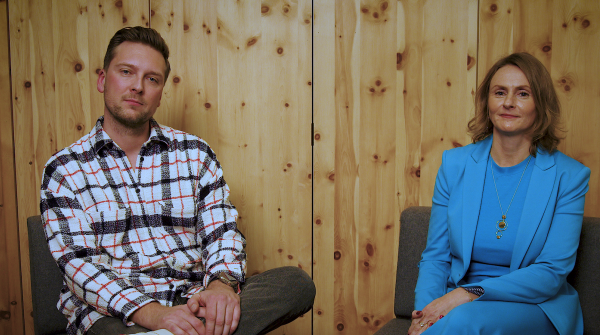"Once I started to not get distracted with winning and losing, not having my identity tied up in the result, it really freed me up as a player." This moment of clarity helped him to stop being overwhelmed by expectations and take his game to a new level. It was a redefinition of success that enabled him to focus on what mattered: the moment.
Malaika Mihambo's mental strength is just as impressive. At the 2024 Olympic Games, marked by the after-effects of a Covid illness, she showed what focus really means. "And with a lot of adrenaline, so much possible. That's what gave me wings for the competition."
This attitude also runs through the philosophy of Julian Nagelsmann, who emphasizes how crucial quick, courageous decisions are for success.
It is precisely this determination that drives his teams to focus on the now instead of dwelling on the past or the future. Julian Nagelsmann exemplifies how quick, courageous decisions make all the difference.
What can managers learn from this? Decisiveness and the courage to break new ground bring progress and success. Combined with teamwork, this becomes a key recipe for sustainable and healthy leadership.

But what happens when the moment is not perfect? Andre Agassi showed in his career that even the most difficult phases offer an opportunity for a fresh start. "I was good at something I hated for a long time." This inner conflict forced him to question himself and find his own path. The setbacks became milestones that made him stronger.
For Mihambo, weakness was also never an obstacle, but a driving force.
Her Covid illness could have set her back, but she decided to take on the challenge and draw strength from it. This resilience carried her to her silver medal and showed that success often comes from inner resilience.
Alexander Zverev, who had to take months off after a serious injury, confirms this view. "For me to be back where I am, being back to number two in the world and competing for big tournaments...was a huge thing already, but I’m not satisfied yet. I feel like there are still things that I want to accomplish." Mischa Zverev summed it up aptly: "Setbacks are tests. They show you how far you're willing to go." The stories of Agassi, Mihambo and the Zverev brothers show that setbacks are not stop signs, but springboards for a new upswing.
The appeal to managers: setbacks are stepping stones to new success if they are approached with courage and innovation.

ISPO Munich 2024 has shown that technology will be the ultimate growth driver for the sports business in the coming years. In addition to focus and resilience, innovation also played a decisive role in the keynotes of the sports stars. Alexander Zverev explained how neuroathletic training and virtual reality help him to get the most out of his performance.
This technology allows him to optimize his movement sequences and prevent injuries.
Julian Nagelsmann uses similar approaches to shape his teams. "Data analysis not only shows us how players can improve, but also how they can fit better into the team dynamic." This technological precision helps him to develop strategies that are both individual and team-oriented.
But Andre Agassi warns that technology alone is not enough: "Machines don't win games. At the end of the day, it's the work you put in that counts." The combination of human effort and technological progress shows how modern approaches complement traditional values.
But the message is clear: technology is inevitable - it is the driver of the future.

Despite all the tools and strategies, one thing remains indispensable: attitude. Andre Agassi singled out Novak Djokovic as a role model because he strives for perfection in every area of his life: "I think the great players do is they don't discriminate on the value system of any point. Every point matters, every detail matters." It is this dedication that characterizes champions.
Malaika Mihambo, on the other hand, emphasized the social responsibility of sport.
Their vision of inclusive sport inspires them to use success not only for themselves, but also for others and to fight together against the ever-increasing global inactivity.
Julian Nagelsmann and the Zverev brothers emphasized the importance of authenticity in leading and inspiring others. "A team will only follow you if you really believe what you say," explained Nagelsmann. Mischa Zverev added: "You bring who you are to everything you choose to do." Attitude is not an accessory - it is the core.

The speakers' stories showed how important it is to focus on the moment, learn from setbacks and use new technologies. Their message was clearSuccess comes from focus, resilience, innovation and a clear mindset. The stories of Agassi, Mihambo, Nagelsmann and the Zverev brothers are a call to action: the future is active, healthy and technology-driven. It is up to us to shape it.
- Awards
- Mountain sports
- Bike
- Fitness
- Health
- ISPO Munich
- Running
- Brands
- Sustainability
- Olympia
- OutDoor
- Promotion
- Sports Business
- Textrends
- Triathlon
- Water sports
- Winter sports
- eSports
- SportsTech
- OutDoor by ISPO
- Heroes
- Transformation
- Sport Fashion
- Urban Culture
- Challenges of a CEO
- Trade fairs
- Sports
- Find the Balance
- Product reviews
- Newsletter Exclusive Area
- Magazine





